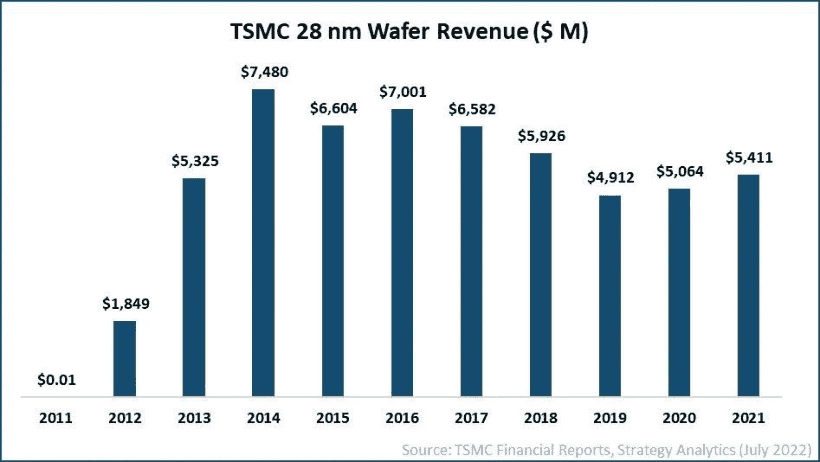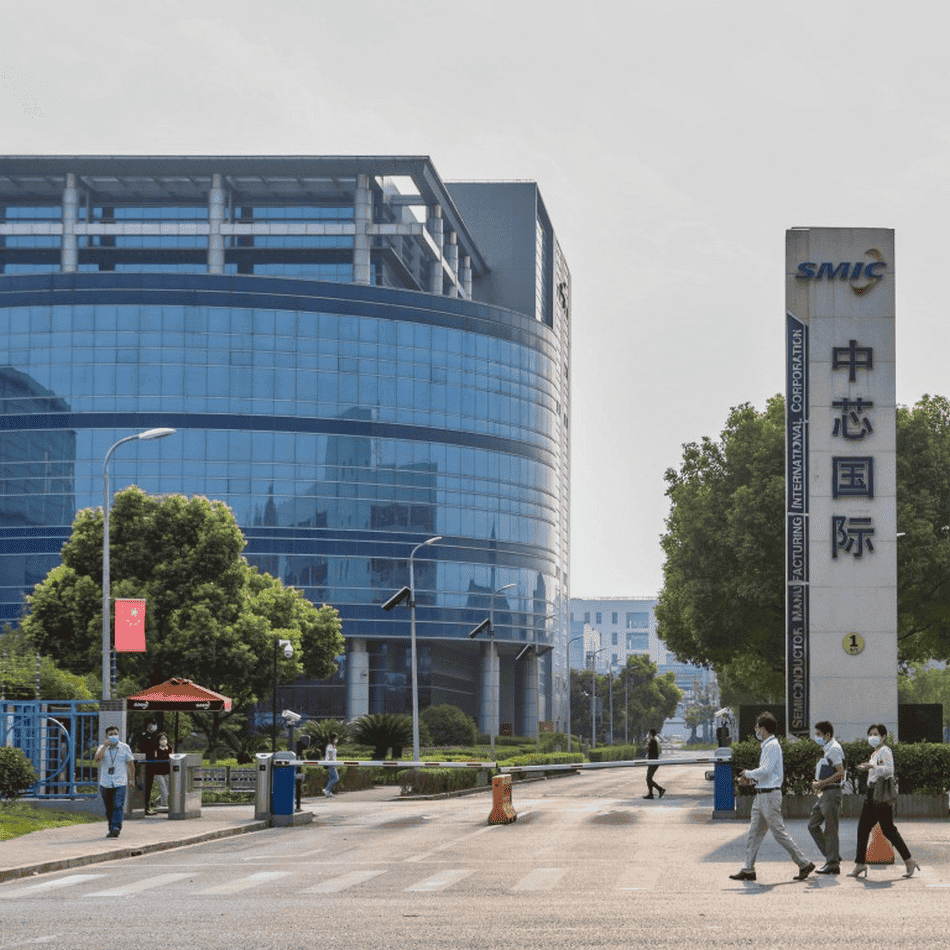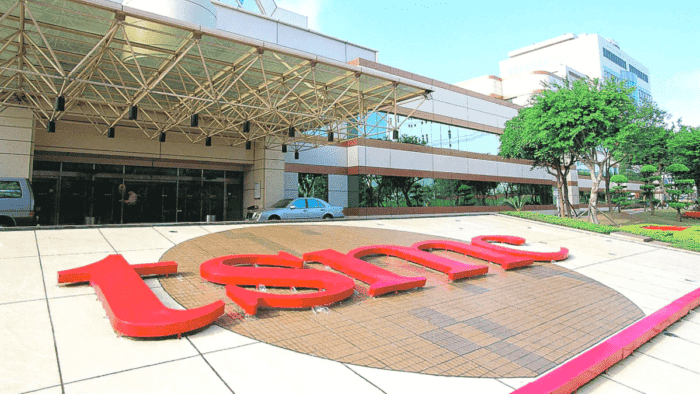TSMC currently sells its 4 nm manufacturing process to chipmakers interested in cutting-edge processors for the flagship market. For instance, we have the MediaTek Dimensity 9000 SoC and most recently, Qualcomm decided to go with TSMC for its Snapdragon 8+ Gen 1 SoC. However, the 4 nm manufacturing is just a small portion of the company’s manufacturing demand. While the company prepares for trial production of its 3 nm chips, the old 28 nm chips are still bringing revenue.

TSMC 28 nm chips are still bringing considerable revenue
According to a fresh report by Strategy Analytics, after a decade, the TSMC 28 nm chips still have considerable gains. TSMC, UMC, and SMIC are further expanding their 28 nm capacity. In 2021, the total revenue of the 28 nm wafer foundry will exceed $7.2 billion. TSMC will account for about three-quarters of the revenue. The company is still investing in 28 nm and will set up a fab in Kaohsiung to produce 7 nm and 28 nm processes. The company will begin construction in 2022 and start mass production in 2024. In addition to that, TSMC will establish a subsidiary, Japan Advanced Semiconductor Manufacturing Co., Ltd. (JASM), to provide foundry services in Kumamoto, Japan. It will provide the initial technology of the 22 / 28 nm process. JASM’s fab in Japan will begin construction in 2022 and start production by the end of 2024.

TSMC clearly still sees good demand for 28 nm chips in the upcoming years. Otherwise, it would not invest money in manufacturing plants for these chips. The company is achieving good results achieving a strong revenue of around NT$534.14 billion in the second quarter. The company expects its 3 nm (N3) to enter production now that we’ve reached the second half of 2022. They will contribute to the revenue by the first half of 2023. However, it’s still unclear if mobile makers are jumping on the 3 nm bandwagon or will stick with 4 nm for another year. TSMC is also planning the 2 nm chip manufacturing for 2025.
Currently, TSMC has strong control over the smartphone market. This does not seem to be changing anytime soon, but Samsung keeps trying and is the first to manufacture 3 nm chips.





